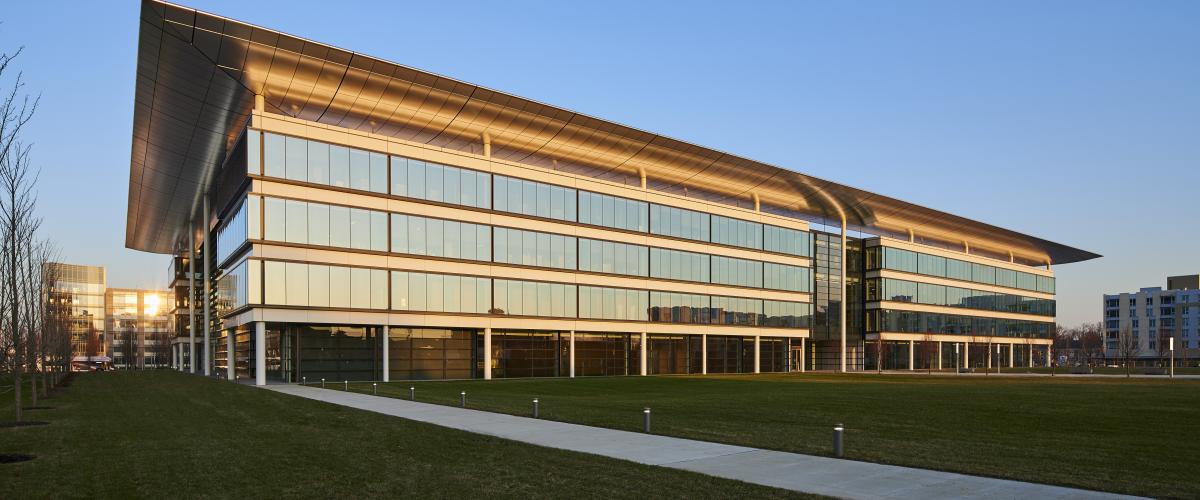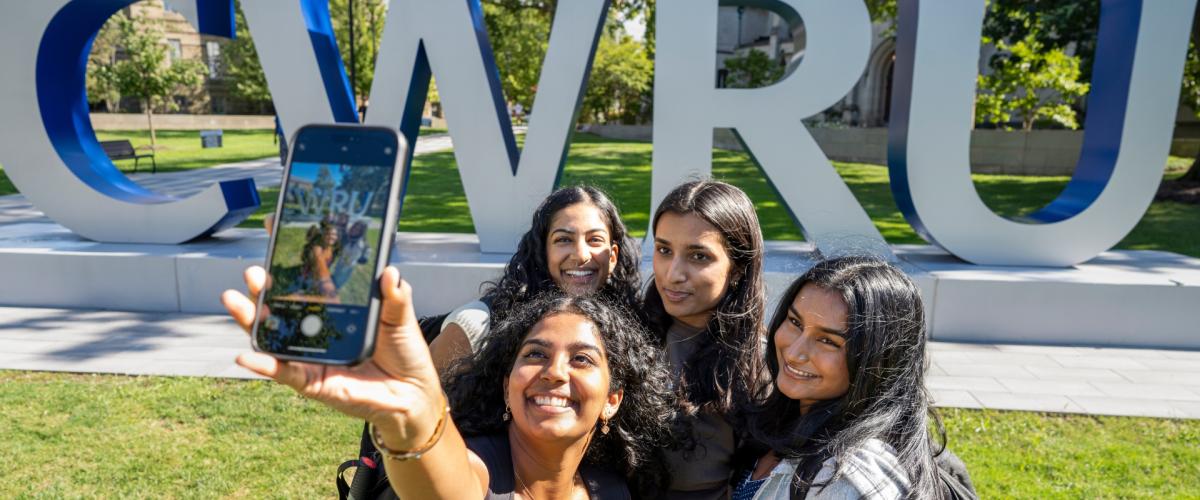
Meet more new faculty at the College of Arts and Sciences
The students in Case Western Reserve University’s undergraduate Class of 2029 aren’t the only new faces on campus this semester. We also welcomed new faculty members across the university, including in the College of Arts and Sciences.
Read on to get to know some of those new faculty members, who shared their thoughts on their careers and research endeavors—and read about more new faculty members at the college we profiled Monday.
Answers have been lightly edited for length.
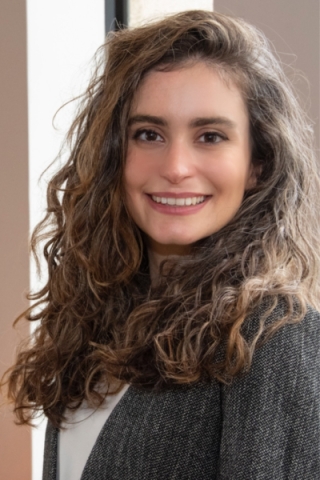
Rita Obeid
Assistant Professor
Department of Psychological Sciences
Before arriving in Cleveland, Obeid was a visiting associate professor at Lehman College, where she conducted research on child language development to reduce stigma toward disabilities on a national and international level. Obeid also received her bachelor’s and master’s degrees in psychology from the American University of Beirut, and her master's and PhD in developmental psychology from City University of New York.
What are your specific teaching and/or research areas and interests?
I teach courses in child psychology and adolescent psychology. As a researcher, I study developmental disabilities from a cross-cultural perspective. My research has two primary aims: (1) understanding differences in cognitive and motor factors that predict language skills in young children, and (2) examining conceptions of autism and the role that culture plays in shaping attitudes toward developmental disabilities, with the aim of having environments be more inclusive and supportive of autistic individuals.
What do you look forward to at Case Western Reserve University?
I’m most looking forward to working with CWRU's amazing and highly motivated students; this is something I have enjoyed at CWRU quite a lot. Although I’m not new to CWRU, I’m excited about this new role, where I will be able to mentor students in research and continue developing and maintaining community partnerships in the work that I do.
Do you have any personal goals, hobbies, family, interests that you would like to share?
Outside of work, I love being active. I enjoy spending time outdoors. I also enjoy socializing and connecting with friends, and trying out new cuisines. I used to paint using oil on canvas, and I plan to pick up painting again as I settle into this new role.
What’s one piece of advice you have for students?
As a psychologist, I often remind students that learning is hard, and that’s okay. Like any other skill, it takes practice, repetition, and most importantly, active engagement to master new material. Sometimes, when learning takes time, we get frustrated, but be patient with yourself and stay curious.
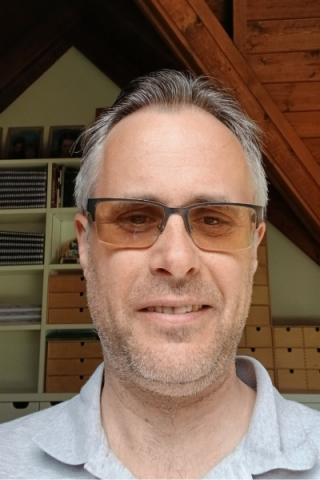
Anne Willem Omta
Instructor
Department of Earth, Environmental, and Planetary Sciences
With a background in physics, meteorology, physical oceanography and marine biology, Anne Willem Omta received his bachelor's and master's degrees from Utrecht University VET in the Netherlands, and his PhD at Vrije Universiteit Amsterdam. From 2009 to 2022, Omta served as a research scientist for the Massachusetts Institute of technology formulating models for the ocean carbon cycle, marine ecosystems, and ice ages.
What are your specific teaching and/or research areas and interests?
On a general level, my interests are Environmental Science, Oceanography, and Climate Change. More specifically, my research has focused on the marine carbon cycle. I have done a lot of work on understanding why atmospheric CO2 levels vary between Ice Ages and interglacial periods and on improving marine ecosystem components of models for the marine carbon cycle.
What do you look forward to at Case Western Reserve University?
I am probably in a somewhat different position than the other new hires that are being interviewed by The Daily, since I have been affiliated with CWRU in different capacities for almost 7 years already. Most recently, I was a Visiting Assistant Professor from July 2022 until June 2025. Having said this, I am very much looking forward to the courses that I will be teaching in the Spring 2026 semester: Introduction to Environmental Thinking (ESTD 101) and Introduction to Oceanography (EEPS 115). EEPS 115 is really a natural science course: it provides a broad overview of our knowledge about the ocean from the perspectives of physics, chemistry, and ecology. By contrast, ESTD 101 is about how humans interact with the environment, from both a natural science and a societal perspective. There are several in-class discussion sessions about topics ranging from nuclear energy to zoos to climate reparations. The last 3 weeks of the course are reserved for the Colorado River Challenge, an exercise in dialogue between different stakeholders to address the problem of water scarcity in the Southwestern USA.
Do you have any personal goals, hobbies, family, interests that you would like to share?
Personal growth is an important goal in my life. A key part of this is "Know thyself": where are your weaknesses, which emotions might blur your vision, and how do you deal with that? Through such self-examination, I aim to continue becoming a better and stronger person, although we all need to accept that we are never going to be perfect.
What’s one piece of advice you have for students?
My advice to students is again "Know thyself". When you need to decide about a major or about graduate school or about a career, look inward. Which courses have you been good at? Which courses have you enjoyed? Which courses have given you energy? Those should be important considerations in your decision about your future. The thing is: in your further studies or professional career, there will likely be times when you will feel overwhelmed by what is expected from you. It will be a lot easier to get through those times if you fundamentally like what you are doing.
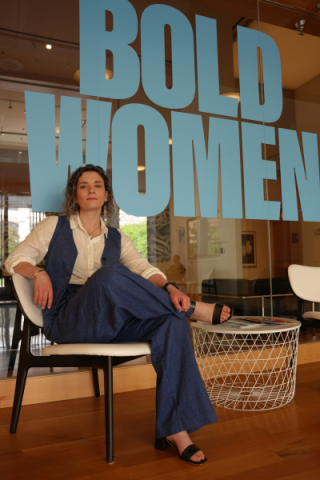
Rachel Quist
Assistant Professor in the Arts of Asia
Department of Art History and Art
Well-versed in curation and museum education, Rachel Quist received her bachelors in Plan II Honors and Art History, her masters, and PhD in the History of Art and Art history from the University of Kansas. Before arriving to Cleveland, Quist was a Guest Researcher at Osaka University in Osaka, Japan, where she installed an exhibition of Daigoji’s treasurers at Nakanoshima Museum of Art.
What are your specific teaching and/or research areas and interests?
I primarily research Japanese art history, examining the ways that Buddhist images come to life through their relationships to people and places. I'm currently teaching a class on medieval Japanese art, and in Spring 2026, I'll teach two courses on Asian art. I first chose my specialization after falling in love with the expressive qualities of a narrative handscroll. Since then, I've shifted focus to sculptural icons and reliquaries, but in each case, I find that I'm deeply interested in the emotional connections we build with art. I think this theme is present in most of my research and teaching pursuits regardless of medium, culture, or era.
What do you look forward to at Case Western Reserve University?
Case is such a vibrant hub for interdisciplinary inquiry, so as someone who examines worship imagery in the context of medicinal traditions and environmental worldviews, I'm eager to collaborate with colleagues across the university. I also look forward to teaching in partnership with colleagues at the Cleveland Museum of Art, which is a treasure trove not only for its stunning collection, but also for the fantastic professionals who steward it.
Do you have any personal goals, hobbies, family, interests that you would like to share?
Making ceramics is one of my greatest joys, and I've been in and out of the studio since high school–the trimming process is especially meditative. I also enjoy baking bread, taking nature walks, and going to live shows.
What’s one piece of advice you have for students?
Questions are one of the most important items in your toolkit, whether you're trying to improve your academic understanding or build interpersonal connections. It often feels more comfortable to shy away from asking for clarity or information, but a thoughtful question opens so many more doors and leads to the best solutions. (And, if we're lucky, more questions!) I encourage you to be openly curious and cultivate a respectful environment in which you and your peers feel comfortable being inquisitive.
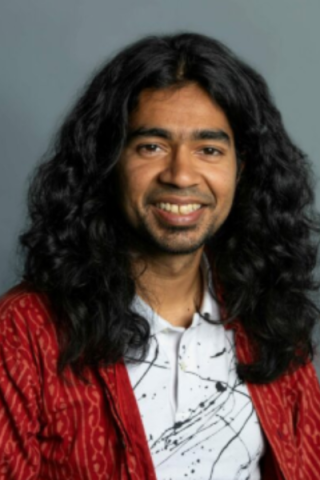
Yash Sondhi
Assistant Professor
Department of Biology
What are your specific teaching and/or research areas and interests?
My research focuses on the sensing in animals. I examine animal motion, genes, and neural circuits to identify how they respond to changing environments. I do this through community based and open source and low cost science. I work with communities in Costa Rica, Panama, India and the US to examine how light pollution is impacting insects and how we can mitigate this impact. My teaching areas include computational biology, entomology and ecology
What do you look forward to at Case Western Reserve University?
I am most looking forward to working with collaborating with my new colleagues and engaging with the fantastic and diverse student body here at Case Western Reserve University. I'm also excited to contribute to the university's growing research profile as premier research institute.
Do you have any personal goals, hobbies, family, interests that you would like to share?
In my free time, I enjoy hiking, exploring new restaurants, and playing the guitar and photography. I'm also an avid reader of science fiction and fantasy.
What’s one piece of advice you have for students?
My advice to students would be to always ask and challenge the norm, embrace curiosity, ask questions, and don't be afraid to step outside of your comfort zone. The university experience is a unique opportunity for growth and discovery and make full use of it. Make your own opportunities, you can be the agents of change you want to see.
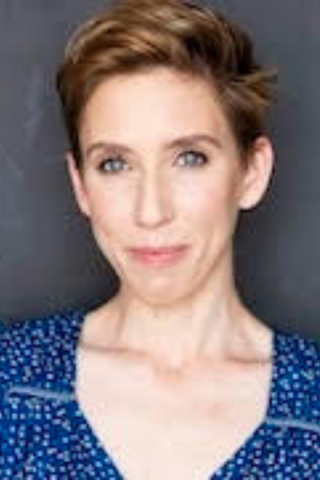
Hayley Jannielli
Assistant Professor
Department of Theater
After a decade of performing and teaching in New York City, Hayley Jannielli joins the Department of Theatre at Case Western Reserve University as Assistant Professor of Voice and Acting. A Designated Linklater Voice Teacher, her work explores both the physical and psychological “blocks" in vocal production, guiding voice users to speak with more embodiment, resonance, and connection.
What are your specific teaching and/or research areas and interests?
My work centers on the intersection of voice, body, and imagination—helping actors and speakers cultivate a stronger presence, a freer voice, and a deeper relationship with language.
What do you look forward to at Case Western Reserve University?
I look forward to collaborating with CWRU students and colleagues who share a passion for creativity, communication, and craft.
Do you have any personal goals, hobbies, family, interests that you would like to share?
I love living downtown with my husband Jeremy and our dog Rocky, just blocks from the beloved Cleveland Play House where I coach professional productions. Outside of the classroom, I’m a retired ballet dancer, amateur drummer, and learning Spanish!
What’s one piece of advice you have for students?
Follow your curiosity—let it be your guide.
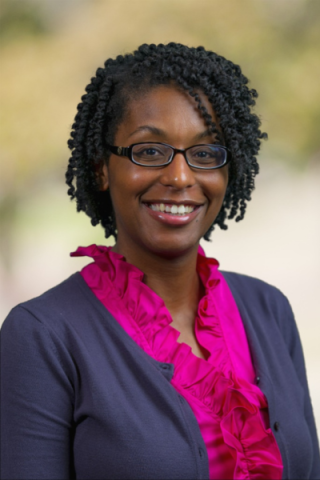
Stacy Ryan-Pettes
Associate Professor
Department of Psychological Sciences
Though Stacy Ryan-Pettes always knew she wanted to work to improve the lives and condition of youth navigating the juvenile justice system, it was during her research training that she discovered a passion for implementation science and health equity. A licensed clinical psychologist with a PhD in clinical psychology from Emory University and postdoctoral training at the Center for Addiction Research at the University of Arkansas for Medical Sciences, Ryan-Pettes is committed to bridging the gap between evidence-based treatments and real-world practice—particularly for justice-involved youth and their families.
What are your specific teaching and/or research areas and interests?
My research centers on advancing evidence-based interventions for adolescent substance use, especially within real-world settings like juvenile probation and community settings that often serve as entry points to the justice system. I specialize in Contingency Management and Multisystemic Therapy.
A consistent thread throughout my work is health equity—specifically, understanding the biopsychosocial factors that shape externalizing behaviors and treatment outcomes for minoritized youth. I’m excited about the direction my research is taking. I’m moving to a focus on integrating innovative methodologies like artificial intelligence and machine learning to examine psychotherapy processes and treatment mechanisms.
At Case Western Reserve, I’ll be teaching courses in developmental psychopathology and child clinical interventions, with plans to develop new undergraduate offerings in my specialty area. Across all my teaching, I emphasize learning objectives that foster cultural humility, deepen understanding of social justice, and promote evidence-based practice.
What do you look forward to at Case Western Reserve University?
I’m thrilled to contribute to the Sara and Curt Moll Institute for Mental Health and Well-Being, engage with the Schubert Center for Child Studies as a faculty associate, and return to engaging in research-centered mentorship of doctoral students. The collaborative research environment at CWRU is exceptional, and I’m especially excited about our proximity to the Cleveland Clinic, University Hospitals, and existing partnerships with the Cuyahoga County Juvenile Court Probation Department. These connections offer rich opportunities for clinical collaboration and access to diverse populations.
I’m excited to develop community-based initiatives around substance use prevention and mental health, and to establish a research program grounded in the institution’s commitment to both scientific rigor and meaningful, real-world impact.
Do you have any personal goals, hobbies, family, interests that you would like to share?
I’m moving to Cleveland with my husband and our three children (ages 18, 10, and 8). As an African American family, we’re excited to find a community where we can thrive both personally and professionally. We’re looking forward to exploring Cleveland’s museums, cultural institutions, and discovering all the cozy neighborhood coffee shops and restaurants.
Personally, I’m working toward being more present for my family while building a sustainable and impactful research program. I also hope to connect with the local community through prevention initiatives and give back through meaningful partnerships.
What’s one piece of advice you have for students?
College and graduate school aren’t just about mastering technical skills—they’re about developing critical thinking, resilience, and a collaborative spirit that will carry you through your career. Take risks. Be transparent in your professional relationships.
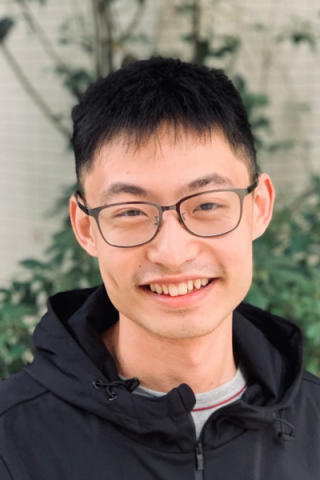
Yihang Wang
Malcolm E. and Betty C. Kenney Distinguished University Assistant Professor
Department of Chemistry
Yihang received his B.S. degree in Physics from the Southern University of Science and Technology in 2017. His research explored the possibility of combining AI techniques with molecular dynamics simulation to study the interaction mechanisms of (bio)molecules. He was a postdoctoral fellow at the Chicago Center for Theoretical Chemistry (CCTCh) before becoming an Eric and Wendy Schmidt AI in Science Postdoctoral Fellow at the University of Chicago.
What are your specific teaching and/or research areas and interests?
My research focuses on using theoretical and computational tools to understand the properties of biomolecular systems. In particular, I use molecular dynamics simulation, which can be thought of as a “computational microscope” to study molecular structure and dynamics. With the help of AI, I aim to make these tools more efficient, accurate, and intelligent. I also apply these advanced methods to answer fundamental biological questions and address pharmaceutical challenges, such as drug design.
What do you look forward to at Case Western Reserve University?
I am excited to establish my own research group and explore new ideas.
Do you have any personal goals, hobbies, family, or interests that you would like to share?
I enjoy growing plants and experimenting with crossbreeding to create new varieties. That is my own version of “wet lab” outside my computational lab.
What’s one piece of advice you have for students?
Let curiosity guide you and courage push you forward.



